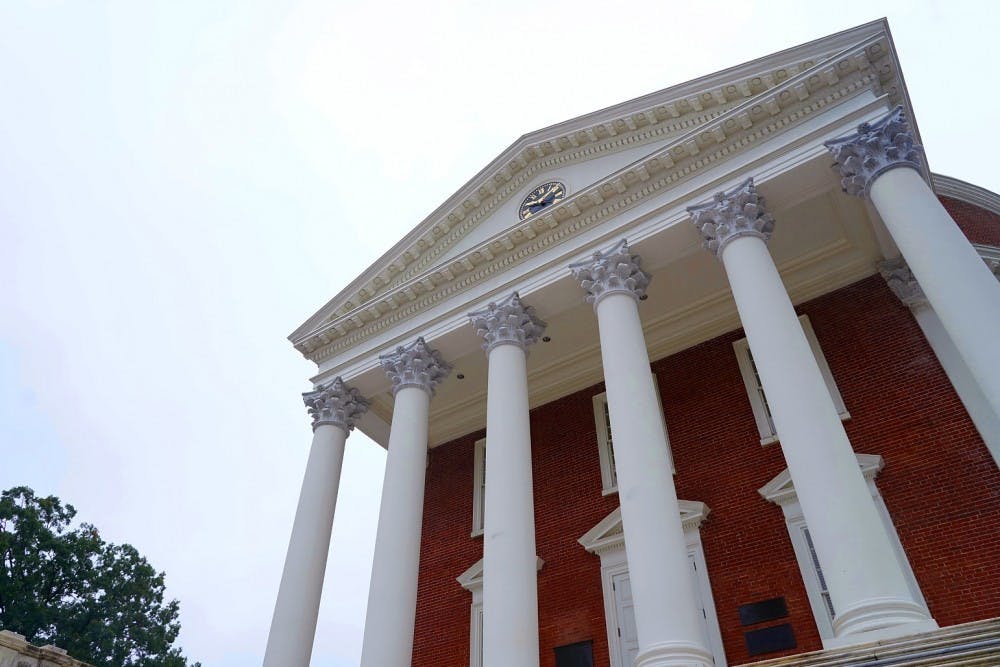This Friday, the U.Va. Board of Visitors will likely vote to raise tuition and fee rates by a proposed range of 2 to 3.5 percent. Considering that the University’s tuition and fee rates have already increased 78 percent in the past decade, the Board of Visitors owes students a better explanation on why they are considering raising tuition, yet again.
As last week’s editorial published by The Cavalier Daily pointed out, if the University wants to increase tuition on students and families, the resulting revenue ought to be put towards initiatives that directly impact students’ education experiences, support student-led initiatives, and address student concerns.
These are valid concerns that the University should be taking into account when making these decisions. However, the Board of Visitors refuses to listen to these student concerns prior to voting to raise tuition at board meetings by not permitting a public comment period. In addition, during the General Assembly session last year, some from the University did not support legislation that would created a public comment period, calling it “unnecessary.” This is unacceptable. We as students deserve to have our voices heard when these crucial decisions are being made.
The governor appoints members to the boards to govern Virginia’s colleges and universities and to hold public higher education accountable to taxpayers and consumers, students and families included. But no board can truly represent public interest and student concerns without allowing those voices to be heard directly. The voices of college presidents and administrators should not be the only voices that the Board hears, because no matter how good their intentions may be, they cannot speak for students. Students are perfectly capable of speaking for themselves and should not just be permitted, but encouraged, to do so.
While regulatory agencies in Virginia, for example, are required by law to accept public input by holding periods of public comment, our public colleges and universities are the exception to the rule. To address this issues, during the 2018 legislative session, Senator Chap Petersen (D-Fairfax) and Delegate Jason Miyares (R-Virginia Beach) introduced bills that would have raised higher education to a higher standard of public accountability by requiring them to hold public comment prior to voting on tuition and fee rates. While the House of Delegates passed Miyares’s HB 1473 unanimously, both bills were killed in the Senate Finance Committee.
In the interim, there have been some efforts to give the public more of a voice in these decisions at the University. Back in September, Student Council hosted a public event where students and faculty members could learn more about the budgetary process and voice their concerns. And currently, the University is encouraging students and members of the public to submit comments or concerns over the proposed tuition rates through email. However, these efforts provide a poor substitute for a true public comment period that would allow student engagement in the decision-making process.
Limiting student participation to a separate public meeting and generic email submission provides little guarantee that the voting members of the Board will hear our concerns. It would be far better to hold a public comment period during a Board of Visitors meeting before they vote to set tuition rates.
The University has a Student Member of the Board of Visitors, a role which is currently held by Brendan Nigro, who is appointed by the Board but does not have a vote. This means one student has to collect sentiments from all members of the student body and raise them before the Board. While the Board’s appointment of a Student Member is appreciated, the position’s lack of voting privileges suggests that the holder’s is unfortunately little more than ceremonial. Moreover, it is unfair to expect one person to be able to articulate the views of the entire student body.
The student body has a right to direct access to the individuals appointed by Virginia Gov. Ralph Northam to make decisions on our behalf and our voices should not be screened by members of the University administration. When it comes to important decisions that directly impact both our education and our wallets, students should not be silenced by those making them. Not only would students benefit from having their voices heard, the members of the Board would benefit from hearing new and alternative viewpoints that may better inform them before making decisions that could have a lasting impact on the student body and faculty.
It is because of these concerns that I have taken on the role of Campus Coordinator for Partners for College Affordability and Public Trust to aid them in their advocacy for affordability and transparency. I have also decided to help gather students to attend the Board’s meeting this Friday at 10:00 a.m. in the Rotunda. Students may not have an opportunity to speak, but we do have an opportunity to stand together in silent protest. Given that the meeting is open to the public, every U.Va. student should make an effort to attend, sending a powerful message to the board — we are here and will not lie down.
Tanner Hirschfeld is a third-year College student and the U.Va. Campus Coordinator for Partners for College Affordability and Public Trust.





